‘Reformist’ Politicians Lambast Iran’s Hijab Crackdown
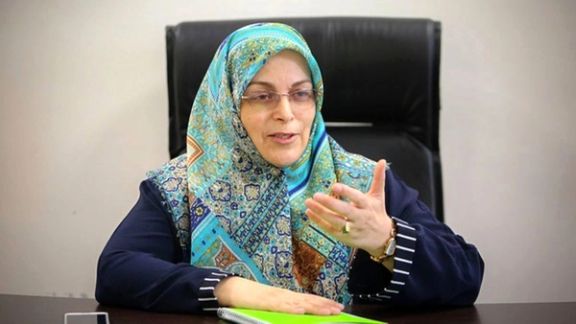
Several prominent ‘reformist’ figures have lambasted the Iranian government’s new wave of crackdown on women defying mandatory hijab.

Several prominent ‘reformist’ figures have lambasted the Iranian government’s new wave of crackdown on women defying mandatory hijab.
Leader of the Reformist Front party Azar Mansouri urged the government to end the “devastating conflict” over compulsory hijab on Thursday.
“Before the death of Mahsa [Amini] and the protests that followed, we time and again demanded that the morality police be dismantled. But just at a time when national solidarity is needed more than ever, the same ugly scenes are seen with more intensity and violence against Iranian women and girls,” she wrote on X.
Meanwhile, Reformist commentator Abbas Abdi rejected the government’s harsh measures as violating “the law and morality,” further warning that the compulsory hijab policy will backfire. “If they are doing this to make people disgusted with hijab and Islam, they will definitely succeed because this will have no other achievement,” he stated.
In a video message released on Thursday, Mohammad Ali Abtahi, a senior aide to former president Mohammad Khatami, criticized the “street offensive” against Iranian women to enforce hijab laws. Referring to the threats of possible Israeli retaliation against Iran’s recent attacks and the division in the Iranian society over hijab laws, Abtahi said, “According to political conventions, you need to think about internal unity during wartime.”
On Saturday, Iran's police initiated a plan to force unveiled women to adhere to the hijab laws, resorting to violence against detainees and people who attempted to intervene to prevent women's arrests.
One of the last victims of the Iranian regime’s repressive hijab policy was Armita Geravand, a sixteen-year-old girl. She died on October 28, 2023 after about a month in coma for brain damage she suffered during a violent encounter with hijab enforcers deployed at Tehran’s subway stations.
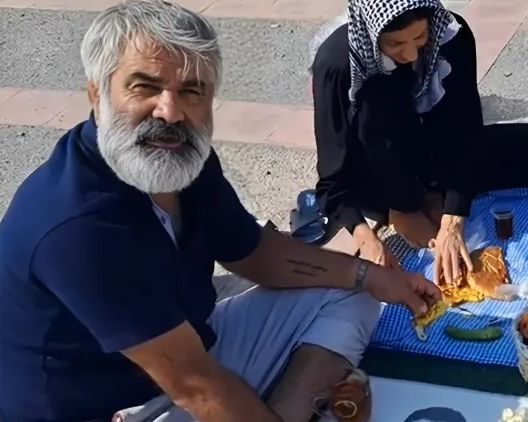
Mashallah Karami, the jailed father of executed protester Mohammad Mehdi Karami, was abruptly transferred from prison to an undisclosed location this week and was returned to prison Thursday.
Karami was being held at Karaj Central Prison. He was arbitrarily arrested near his home by the Iranian intelligence ministry agents August last year. According to reports by Dadban -- a group of pro-bono lawyers in Iran defending political prisoners and rights activists -- Karami was transferred from the prison without any prior notice on earlier this week.
In the wake of Iran's "Woman, Life, Freedom" protests, Karami's eldest son, Mohammad Mehdi, was arrested without justification. Accused of involvement in the alleged killing of Ruhollah Ajamian -- a member of Revolutionary Guard's Basij forces -- he was hanged in January 2023, alongside fellow protester Mohammad Hosseini.
According to his lawyer, Ali Sharifzadeh, Mashallah Karami is accused of “propaganda against the Islamic Republic", and "collusion with the intention of committing a crime against national security" and two other accusations in relation to money laundering.
Last month Sharifzadeh reported that Karami's mental health was deteriorating in prison due to “the loss of his child and being far from his wife," adding that he hoped Karami would be granted furlough for the Norouz holidays (Persian New Year). Iranian authorities have refused to grant bail or furlough to Karami.
Arbitrary arrests, detention, and prosecution are part of the Iranian authorities' systemic suppression of protest victims’ families. Last year in August, Amnesty International released a 42 page report titled “Iran: Harassment of families victims unlawfully killed during protests must end,” documenting cases involving 36 victims' families from 10 provinces in Iran.
Additionally, the Kurdistan Human Rights Network (KHRN) reported that it has been 10 days since the disappearance of Kamal Lotfi, the father of slain protestor Reza Lotfi.
Lotfi was arbitrarily arrested and assaulted by security forces earlier in April and taken to an undisclosed location, according to reports by Human Rights Activist News Agency (HRANA).
Lotfi's son, Reza, was killed by Iranian security forces during the protests in Dehloghan in September 2022.
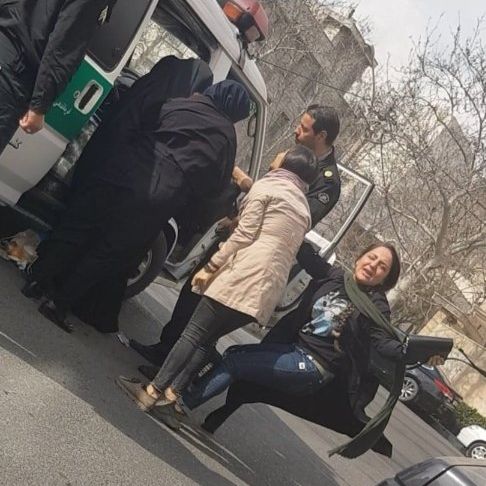
Multiple women arrested by the morality police in the latest crackdown since the weekend have informed Iran International about severe violence including severe physical assault as well as sexual verbal abuse.
A 17-year-old girl said that when she was arrested in Tehran’s Daneshjoo Park, the officers treated her violently, pulling her hair and beating her right arm and thighs with a baton, in addition to making sexual insults.
Male officers in the morality police van that transported the arrested women to a detention center beat the women who refused to submit to arrest.
The young woman told Iran International that at the detention center, the officers made women unlock their mobile phones and to reveal their picture galleries and social media accounts to the brutal state security. She saw more than fifty women in custody, most of whom were in their early 20s or teens.
A 19-year-old girl told Iran International that she refused to unlock her phone for the plainclothes officers at the detention center, so they hit her stomach and genitals with an electric shocker, addressed her with sexual profanity and sexually insulted her family. She was forced to cooperate to avoid being taken to the security agencies.
Several hours after their arrest, both of these girls were released from the detention center after providing their details, home addresses, telephone numbers, and fingerprints and signatures on sheets that were written "did not respect the hijab."
Reports given to Iran International indicate that hundreds of women have been arrested throughout the country, including Tehran and Karaj, for disobeying the mandatory hijab since Saturday when a new policy called project Noor, came into place, allowing further oppression for women and girls amid nationwide hijab refusal.
An Iranian journalist and post-graduate student of political science, Dina Ghalibaf, 24, was arrested at her home in Tehran on Tuesday after describing in a tweet her recent encounter with the police.
On Monday, she sent out a series of tweets in which she described how police used a shocker and handcuffed her at the Sadeghieh metro station for not wearing the mandatory veil.
Shahed Alavi, an editor of the Iran International Newsdesk, states that the regime is concerned people may expand their power and overthrow the government should the country be vulnerable to an attack by Israel amid the two countries' shadow war which came to the fore on Saturday night when Iran launched a massive aerial bombardment towards the Jewish state.
“This is not the Iranian people’s war. The state does not have the nation on its side, yet the regime is trying to force legitimacy by instilling fear and inflicting violence,” he added.
“The government wishes to demonstrate that while they are weak in foreign policy, they still possess power in the domestic arena,” Alavi said.
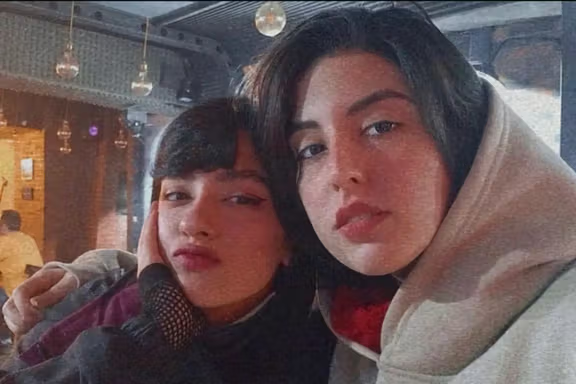
Aida Shakarami, the older sister of the slain 16-year-old Iranian protester Nika Shakarmi, was arrested in Tehran yesterday by the Islamic Republic's guidance patrol for not wearing the hijab.
"Yesterday, my daughter Aida was arrested by Tehran's moral security police for not wearing the mandatory hijab and is still in custody," the siblings’ mother Nasrin Shakarami wrote in an Instagram post.
Iranian authorities have recently escalated their violent crackdown on women for defying the country’s mandatory Islamic hijab laws, with reports of mass arrests across the country.
Some human rights activists argue that the regime is using the crisis and ‘state of war’ with Israel to suppress dissent – and that the country’s Supreme Leader, Ali Khamenei, enacted controversial measures during this time to avoid public backlash.
Nika was kidnapped and murdered by state security forces during unprecedented nationwide protests in Iran in September 2022, following the killing of 22-year-old Mahsa Jina Amini in custody of the so-called “morality police” in Tehran.
Just four days after Amini was killed, videos showed Nika setting fire to her hijab at a protest in Tehran. When Nika suddenly went missing, authorities refused to give the family any answers. After 10 days, authorities informed the family that Nika’s body had been found.
The authorities claimed that Nika had committed suicide. The teenager’s family has repeatedly denied these claims and stated that she was killed as a result of repeated blows to her head.
Subsequent reports indicated that Nika was raped by state security forces before they killed her. Since her murder, the Shakarami family has persistently been targeted with threats from authorities, and several members of the family were detained.
Last October, Aida Shakarami revealed that unidentified individuals had threatened her family while they visited Nika’s grave – telling them that Nasrin, the siblings’ mother, would face arrest.
Nika’s story and death at the hands of the regime turned her into one of the beloved icons of the movement for many Iranians.
Last year, Amnesty International reported that Iranian authorities are “waging a ruthless campaign of harassment and intimidation against the families of protesters and bystanders unlawfully killed by security forces during the “Woman Life Freedom” uprising to force them into staying silent…”.
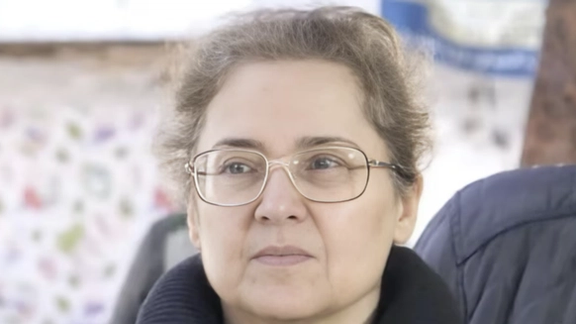
Activist and Islamic scholar Sedigheh Vasmaghi, imprisoned for her opposition to the mandatory hijab in Iran, was sent to hospital from Tehran's notorious Evin prison on Monday without a headscarf.
It is an unprecedented move from Iran's authorities who refuse treatment to prisoners unless they comply with compulsory hijab regulations. High profile cases such as Nobel Laureate Narges Mohammadi have been the face of the regime's brutality for prisoners compelled to wear hijab in exchange for medical treatment. Mohammadi was the sole activist reportedly granted hospital visits without hijab on three separate occasions.
Vasmaghi's Instagram account reported on Wednesday that she was taken to the hospital for eye tests with three male and female agents while refusing to wear a headscarf. It is unclear how the regulations were waived when so many cases have been denied treatment.
The outspoken activist was arrested in early March for her criticism of the compulsory hijab law and for describing Supreme Leader Ali Khamenei as a “dictator” and the regime in power as “oppressive.”
Over 300 political and civil activists in Iran have campaigned for her release in the past week and expressed concern for her health. They expressed their dismay that Vasmaghi had been imprisoned despite her severe visual impairment.
Prior to this, Vasmaghi was denied access to adequate medical care. Iran International had learned from a family source that her health deteriorated on Monday morning, with her heart rate exceeding 120 and her blood pressure exceeding 160.
Narges Mohammadi, a Nobel laureate and jailed Iranian human rights activist, also expressed concern about Vasmaghi’s well-being and wrote on her Instagram account on April 2: "I protest against the government's terrible and deadly repression against Iranian women."
Nevertheless, Vasmaghi, the former professor at Tehran's university, has been vocal in her protests while in prison. Against the backdrop of Iran's recent crackdown on women for hijab rules, in a message from April 2024, Vasmaghi condemned the government's actions as "antipatriotic and contrary to national interests."
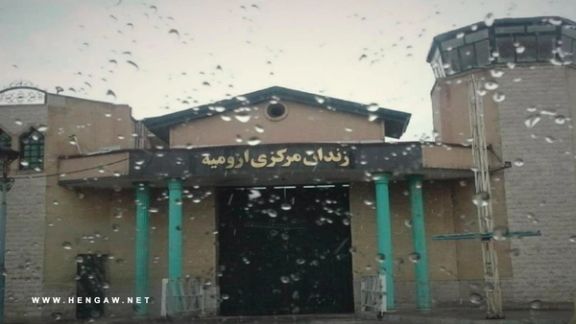
A Kurdish political prisoner who self-immolated at the Central Prison of Orumieh, was transferred to solitary confinement after going on hunger strike.
According to Hengaw Human Rights Organization, Hassan Omarpour, 29, who went on strike to protest his prison conditions and the prosecutor's harsh treatment of his family who have also been intimidated since his imprisonment, has been deprived of all his fundamental rights since Sunday.
Omarpour was sentenced to 10 years in prison in March last year on the charge of "cooperating with Israeli intelligence and espionage."
A year earlier, he and nine other citizens were arrested on similar charges. Following several months of torture in solitary cells, four were executed in January, according to Hengaw.
Omarpour self-immolated in February in response to prison guards attacking him and his inmates.
Kurds continue to come under disproportionate oppression in Iran along with minorities such as the Bahai and Baluch.
Of last year’s record numbers of executions, large numbers were Kurds and minorities.






